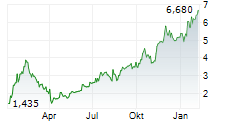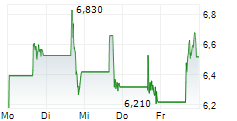
- New data showed a correlation between the levels of neural cell adhesion molecule (NCAM or CD56) expression and response and disease control in patients treated with CTX-471 monotherapy.
- Predictive biomarkers correlated with response and changes in pharmacodynamic markers were seen in patients treated with CTX-471, a novel anti-CD137 agonist antibody, in an analysis from the Phase 1 monotherapy study.
BOSTON, Nov. 08, 2024 (GLOBE NEWSWIRE) -- Compass Therapeutics, Inc. (Nasdaq: CMPX), a clinical-stage, oncology-focused biopharmaceutical company developing proprietary antibody-based therapeutics, today announced its poster presentation entitled "Pharmacodynamic and Response Biomarkers in the Monotherapy Arm of a Phase 1 Trial of CTX-471, a Novel Anti-CD137 Agonist Antibody" at the 39th Society for Immunotherapy of Cancer (SITC) Annual Meeting, from November 6-10, 2024 in Houston, TX.
"This exciting new response biomarker data is extremely important for CTX-471 and our clinical strategy," said Thomas Schuetz, MD, PhD, CEO of Compass and Vice Chairman of the Board of Directors. "Through a comprehensive analysis of tissue and blood samples, we discovered an unexpected correlation between NCAM (CD56) and patient response to CTX-471, as well as a possible mechanistic connection to Natural Killer (NK) Cell activation. This adds more potential indications to CTX-471's development pathway and we are now planning a Phase 2 monotherapy basket study of CTX-471 in patients whose tumors express NCAM. This patient population is substantial."
These data arise from Compass's Phase 1 open-label, first-in-human study that evaluated CTX-471 as a monotherapy in patients with metastatic or locally advanced malignancies that have progressed while receiving an approved PD-1 or PD-L1 inhibitor. Exploratory data reported here complement safety and efficacy data previously published at ASCO 2024. Biopsy specimens and blood samples from patients treated with CTX-471 were analyzed by multi-parameter immunofluorescence, flow cytometry, and a panel of cytokines using the Neogenomics Multi-omyx platform. To measure pharmacodynamic effects, comparisons were made between samples collected before and after CTX-471 treatment. To survey response biomarkers, values from baseline samples obtained from patients with tumors showing complete or partial responses as well as stable disease were compared with tumors showing progressive disease.
Further, the authors propose a mechanism by which NCAM facilitates CTX-471 response. Specifically, tumor cell NCAM appears to enrich activated NK cells in the tumor microenvironment that express the CTX-471 target, CD137 (4-1BB). The dataset shows these effects to be specific for NCAM expressing lymphocytes such as NK cells and is not observed in other lymphocyte subsets such as CD8+ T cells. These findings are novel in a clinical setting and support the potential use of NCAM as a selection marker for future clinical trials.
Data highlights from the poster presentation include:
- CTX-471 pharmacodynamic biomarker changes were consistent with immune stimulation.
- CTX-471 disease control is associated with measurable baseline biomarkers.
- Baseline tumor cell expression of NCAM/CD56 is associated with response and disease control.
- A novel baseline circulating cell phenotype is associated with partial responses to CTX-471.
A copy of the presentation materials can be accessed on the Compass website at https://www.compasstherapeutics.com/pipeline once the presentation has concluded.
About CTX-471
CTX-471 is a fully human monoclonal antibody that binds and activates a novel epitope of the co-stimulatory receptor CD137, also known as 4-1BB, a member of the tumor necrosis factor receptor superfamily. In preclinical studies, CTX-471 has demonstrated potent monotherapy activity against multiple syngeneic tumor models, including the generation of long-term functional immunological memory. The antibody is currently being evaluated in a Phase 1b clinical trial in patients with solid tumors that have progressed after at least three months on an approved PD-1 or PD-L1 inhibitor. Initial results reported from a monotherapy cohort of the study included five clinical responses, all in patients who previously received checkpoint inhibitors, including a durable partial response (PR) in a patient with small-cell lung cancer that converted to a complete response (as confirmed by PET scan) and four additional PRs (one unconfirmed) in patients with melanoma and mesothelioma. CTX-471 has been generally well tolerated. Clinical Trial information: NCT03881488.
About NCAM (CD56)
Neural cell adhesion molecule (NCAM) is a membrane glycoprotein that belongs to the immunoglobulin superfamily mediating homotypic interactions between cells on which it is expressed. It plays a role in neural cell adhesion and central nervous system development. In cancer, NCAM is linked with tumor invasion and metastases, with the most relevant tumor types being neural crest-derived (e.g., metastatic melanoma, SCLC, and glioblastoma) and neuroendocrine tumors (NET). The prevalence of NCAM high tumors ranges from approximately 30% of metastatic melanoma to virtually all of SCLC, glioblastoma and NETs.
About Compass Therapeutics
Compass Therapeutics, Inc. is a clinical-stage oncology-focused biopharmaceutical company developing proprietary antibody-based therapeutics to treat multiple human diseases. Compass's scientific focus is on the relationship between angiogenesis, the immune system, and tumor growth. The company pipeline of novel product candidates is designed to target multiple critical biological pathways required for an effective anti-tumor response. These include modulation of the microvasculature via angiogenesis-targeted agents, induction of a potent immune response via activators on effector cells in the tumor microenvironment, and alleviation of immunosuppressive mechanisms used by tumors to evade immune surveillance. Compass plans to advance its product candidates through clinical development as both standalone therapies and in combination with proprietary pipeline antibodies based on supportive clinical and nonclinical data. The company was founded in 2014 and is headquartered in Boston, Massachusetts. For more information, visit the Compass Therapeutics website at https://www.compasstherapeutics.com.
Forward-Looking Statements
This press release contains forward-looking statements. Statements in this press release that are not purely historical are forward-looking statements. Such forward-looking statements include, among other things, statements regarding Compass's product candidates, such as CTX-471, and the results of scientific and clinical analyses of such product candidates, including their development and clinical trial milestones such as identification of potential biomarkers or other indicators of the therapeutic potential thereof, the expected trial design, timing of enrollment, patient dosing and data readouts, regulatory plans with respect to Compass's product candidates and the therapeutic potential thereof, and references to Compass's financial position to continue advancing these product candidates or related business and development plans. Actual results could differ from those projected in any forward-looking statements due to numerous factors. Such factors include, among others, Compass's ability to raise the additional funding it will need to continue to pursue its business and product development plans, the inherent uncertainties associated with developing product candidates and operating as a development stage company, Compass's ability to identify additional product candidates for development, Compass's ability to develop, complete clinical trials for, obtain approvals for and commercialize any of its product candidates, competition in the industry in which Compass operates and market conditions. These forward-looking statements are made as of the date of this press release, and Compass assumes no obligation to update the forward-looking statements, or to update the reasons why actual results could differ from those projected in the forward-looking statements, except as required by law. Investors should consult all of the information set forth herein and should also refer to the risk factor disclosure set forth in the reports and other documents Compass files with the U.S. Securities and Exchange Commission (SEC) available at www.sec.gov, including without limitation Compass's latest Annual Report on Form 10-K, Quarterly Report on Form 10-Q and subsequent filings with the SEC.
Investor Contact
ir@compasstherapeutics.com
Media Contact
Anna Gifford, Senior Manager of Communications
media@compasstherapeutics.com
617-500-8099



